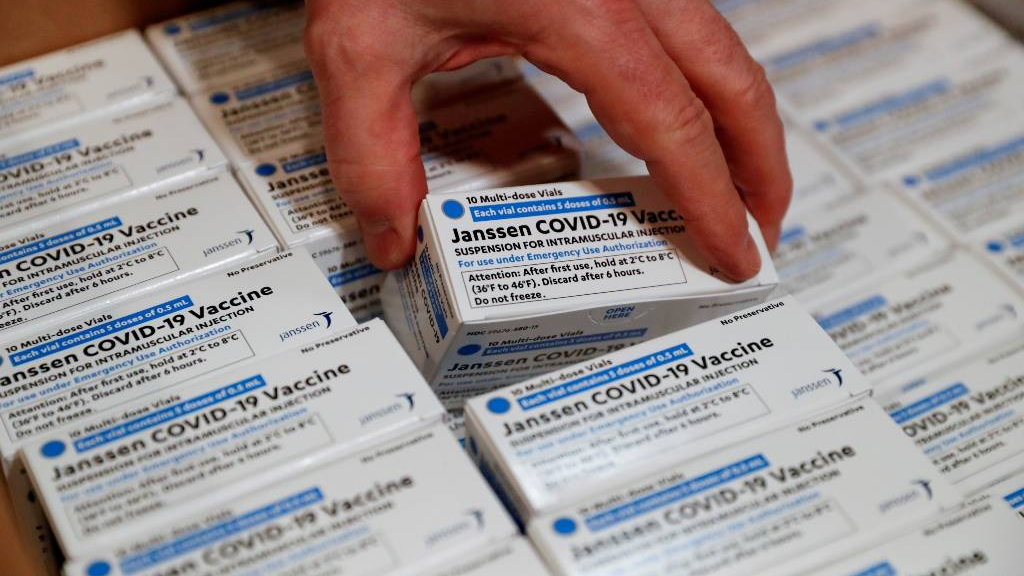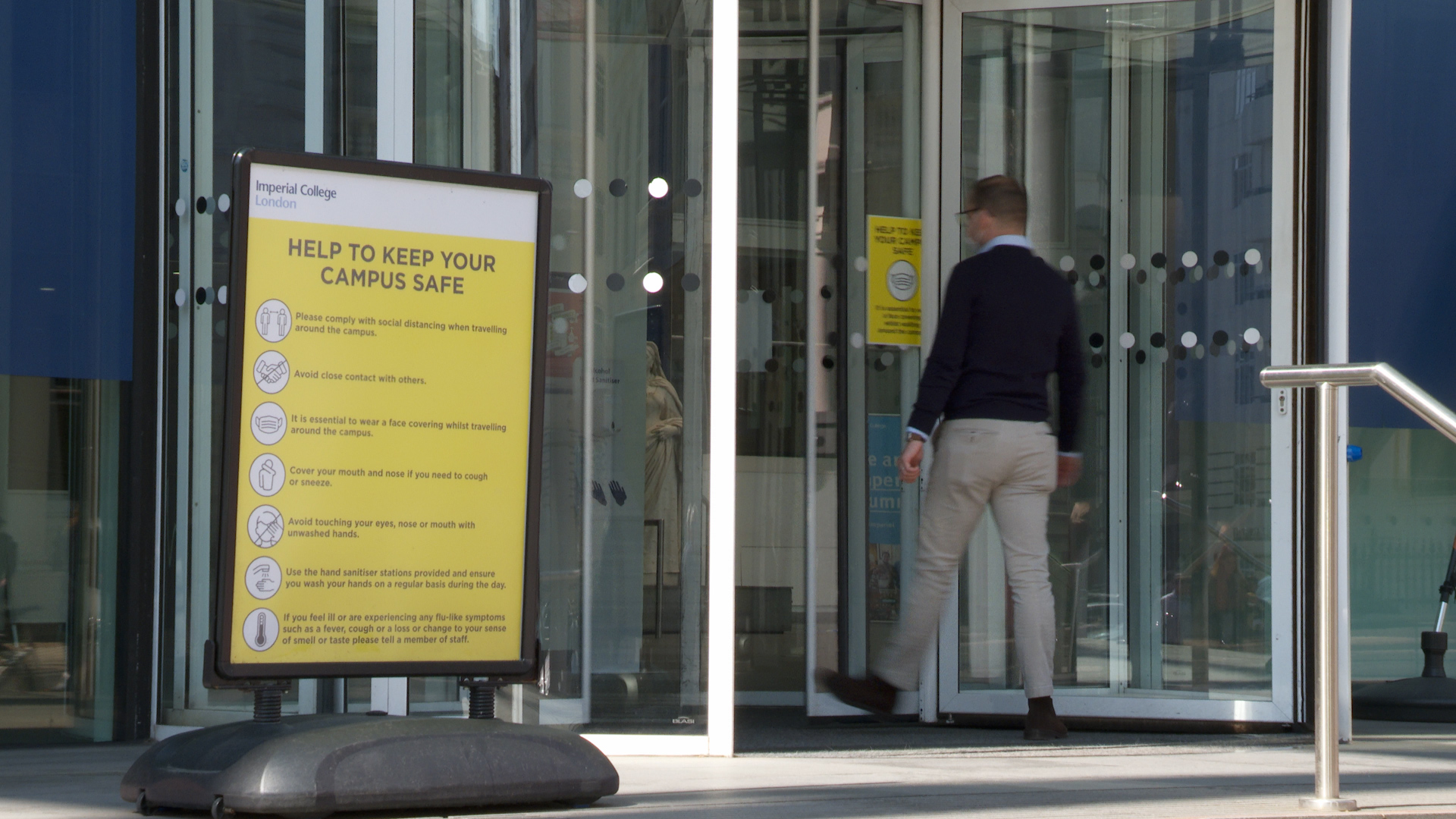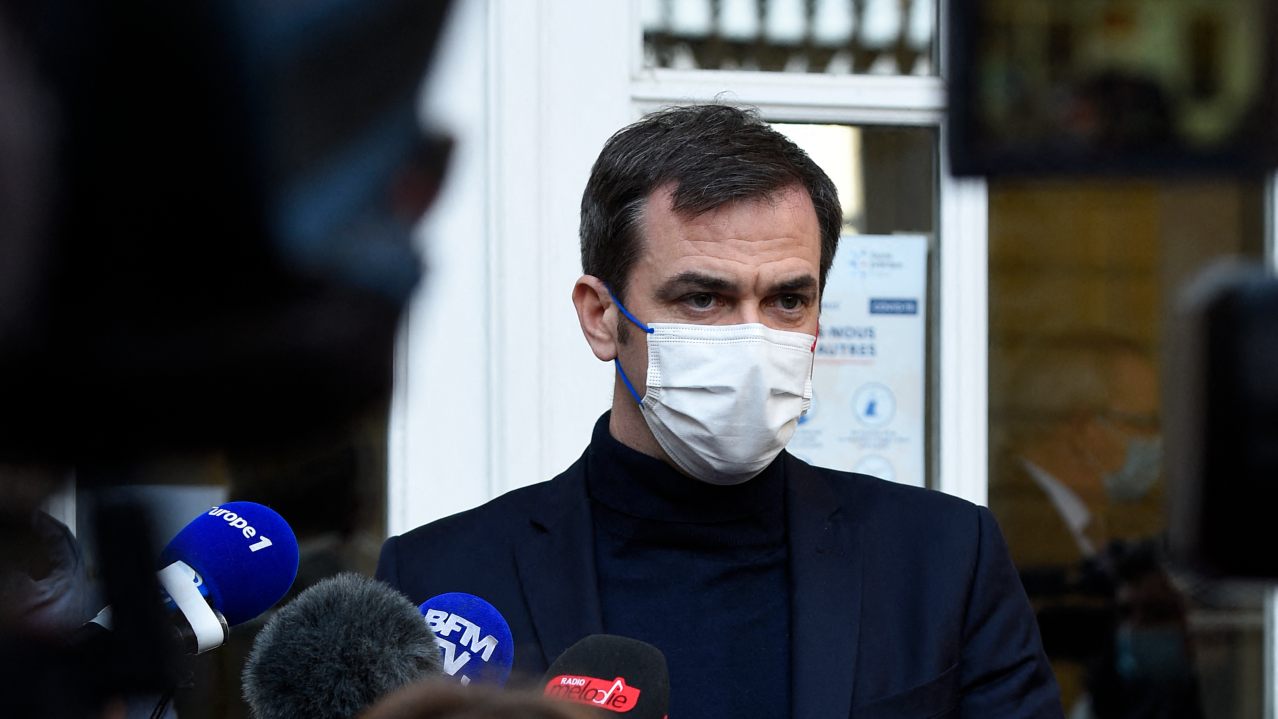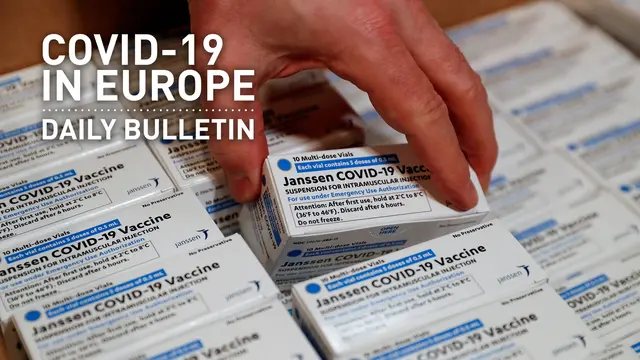TOP HEADLINES
-
The World Health Organization's Director-General Tedros Adhanom Ghebreyesus has said the world has the "tools to bring this pandemic under control in a matter of months , if we apply them consistently and equitably."
-
Europe's drug regulator, the European Medicines Agency (EMA), is expected to rule on the safety of a vaccine developed by U.S. firm Johnson Johnson on Tuesday, following reports of blood clots among people who had the jab.
-
Greece has suspended its planned roll-out of the Johnson Johnson vaccine, until after the EMA has published its review on the jab.
-
The European Union will have enough vaccine doses to inoculate at least 70 percent of its adult population by mid-July ,internal markets commissionerThierry Breton has said.
-
Switzerland has expanded its vaccination capacity by opening mass jab centers in cities across the country including in Geneva and Lausanne, that each have the capacity to inoculate more than 2,000 people each day.
-
Ireland has recorded its first three cases of the variant first discovered in India , the head of the country's national virus laboratory Cillian De Gascun has confirmed.
-
The New Zealand cricket team has said all of its home-based players heading to England for a series later this summer have received their first dose of a vaccine.
-
France's Health Minister Olivier Veran has admitted he would favor a regional easing of lockdown measures rather than a nationwide strategy because the virus is still circulating at a high level in some regions.
-
**Russia has reported 8,164 new cases in the past 24 hours, **while fatalities also rose by 379 people, to bring the nationwide death toll to 106,307.

Europe's drug regulator is expected to rule on the safety of the vaccine developed by U.S. firm Johnson & Johnson on Tuesday. /AP
ACROSS EUROPE
Andrew Wilson in the UK
Groups of six people will be able to meet outdoors in Wales from Saturday and outdoor hospitality is expected to open next Monday.
It's also expected all areas in Scotland will be moved to "level three" from April 26. That will allow the hospitality sector to sell alcohol outdoors to a maximum group of six people.
Six people from two households will be allowed to gather indoors.
The outlook for the UK economy remains uncertain, according to the Bank of England, despite the success of the vaccine program, and the rise in retail activity this month.
Some scientists are saying the government has moved too slowly to put India on the "red" travel list, following the surge in infections there due to a new variant.
Just over 43 million vaccines have been given in the UK, 10.1 million of them second doses.
Penelope Liersch in Budapest
Poland may be able to open up a significant part of the economy at the end of May or beginning of June, depending on progress with COVID-19 vaccinations. The prime minister made the announcement on Monday. After restrictions were extended last week, hotels, cinemas, hair salons and non-essential shops closed.
In the meantime, Hungary will allow outdoor dining to resume once the country has vaccinated 3.5 million people with at least one dose of vaccine. The announcement is expected to come in the next couple of days, with vaccinations standing at 3.2 million on Monday.
02:48

Ross Cullen in Paris
France's health minister said he is optimistic the third wave of infections is now being controlled.
Olivier Veran said that "in the last five days, we have started to decrease," in terms of new coronavirus cases. The current incidence rate is 353 people infected per 100,000. At the end of March, that figure was 410 in 100,000.
Veran has admitted the situation is still "fragile" and he says he is in favor of relaxing the current COVID-19 restrictions region by region, and not all at once nationwide.
The interior minister said police carried out 100,000 checks last weekend and issued 16,000 fines for not respecting current restrictions. Gerald Darmanin said police patrols will increase as better spring weather arrives.
The government will meet unions this week to discuss expanding the list of front-line workers who can receive a vaccine to include bus drivers, cleaners and rubbish collectors.
Ryan Thompson in Frankfurt
The transfer of some coronavirus decision-making powers from Germany's 16 states to the Federal Government in Berlin is proving more difficult than expected.
Chancellor Angela Merkel initially proposed the idea in late March as a solution to uncoordinated responses by states to rising infection numbers. However, many states refused to trigger the previously agreed-to "emergency coronavirus brake," despite passing the threshold that would require that.
The revised Infection Protection Act, which is still under review in the German parliament, would allow for uniform adaptation and enforcement of coronavirus measures such as curfews, closed schools and contact restrictions.
The Bundestag wants to pass legislation on Wednesday. It will then go to the Bundesrat – which represents Germany's 16 states – on Thursday.

France's Health Minister Olivier Veran has admitted he would favor a regional easing of lockdown measures rather than a nationwide strategy. /AP
FROM OUR GLOBAL COLLEAGUES
CGTN Europe:
The Answers Project: Are we alone in the universe?
CGTN China:
China's internet celebrity economy booms
CGTN America:
Fauci expects use of JJ COVID-19 vaccine to be resumed in the U.S.
**CGTN Africa: **
Number of COVID-19 vaccinations in Kenya tops 700,000
Sign up
here
to get the COVID-19 Europe bulletin sent directly to your inbox.
CGTN Europe has been providing in-depth coverage of the novel coronavirus story as it has unfolded.
Here
you can read the essential information about the crisis.
 简体中文
简体中文

